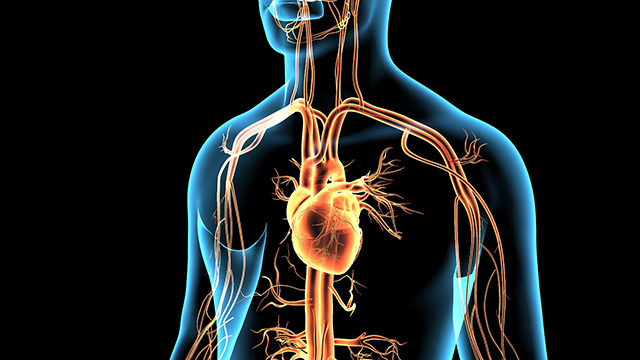Do you have heart rate problems? Experts advise cutting down on sugar
12/10/2018 / By Edsel Cook

Too much of anything is bad for you. This includes sugar, which can disrupt your health and lead to diseases if consumed in excess. A Center for Basic Metabolic Research news article even warns that eating too much sugar could aggravate existing problems with heart rate.
This piece of advice comes from a new study conducted by a Danish research team. The researchers noted that going on a sugar binge was known to cause blood glucose levels to plummet. If the sugar levels in the blood are too low, the heart rate will become irregular.
This cardiovascular condition is called long QT syndrome (LQTS). It can lead to the failure of the organ in the future.
An earlier study by University of Copenhagen (UCPH) researchers showed that blood sugar levels are indeed connected to the regulation of the heart rate. Patients with long QT syndrome are more likely to suffer from dangerously low blood sugar. The latest experiment conducted by the researchers served to reinforce that.
“In fact, a medium-size soft drink is enough to cause the blood sugar to drop to dangerously low levels further increasing the QT interval,” warned UCPH associate professor Signe Sørensen Torekov. “At worst, this can lead to disordered cardiac rhythm and heart failure.” (Related: High blood pressure is caused more by sugar consumption than salt intake.)
Too much sugar triggers too much insulin, which could lead to heart problems
Normally, when you eat foods that have sugar, your blood glucose level starts rising. In response, the pancreas starts producing insulin, a hormone that brings blood sugar back to its normal concentration.
The amount of insulin released by the pancreas is regulated by several means. An earlier UCPH report identified potassium channels as one of the most important ways of controlling the hormone level.
If these channels fail to activate, the pancreas will produce more insulin than is needed. The higher-than-normal hormone levels will cause the blood sugar levels to drop like a rock.
The Danish researchers found that the potassium channels in long QT syndrome patients are not working correctly. The malfunctioning channels are thus responsible for the heart complications experienced by patients.
Faulty potassium channels fail to properly regulate insulin and glucagon levels
In their new study, the UCPH researchers focused their efforts on a particular potassium channel called hERG. This channel is not just associated with the insulin level. It is also linked to the regulation of two more hormones, GLP-1 and GIP.
The purpose of these hormones is to inform the body to produce more insulin. When the hERG channel stops working, GLP-1 and GIP end up further boosting the amount of insulin produced by the pancreas, which leads to even harsher blood sugar crashes.
To make matters worse for LQTS patients, faulty hERG potassium channels stop the production of insulin’s opposite hormone. Glucagon can increase the amount of sugar in the blood.
“When a healthy individual experiences low blood sugar levels, the hormone glucagon reacts by signaling to the body to release more sugar into the blood,” explained Torekov, who serves as the author of the study. “But the glucagon level in people suffering from LQTS is too low.”
Torekov went on to say that the insulin level of the long QT syndrome patient can get to double the amount in a healthy person. Conversely, the patient’s glucagon levels would be extremely low.
He concluded that people should avoid eating too much sugar on short notice. The momentary joy you get from eating that much in the way of sweets will be balanced out by suffering in the future.
Learn more about the harm that excessively sweet foods can do at Sweeteners.news.
Sources include:
Submit a correction >>
Tagged Under:
blood glucose, blood sugar level, bloodsugar, fightobesity, heart diseases, heart health, hormones, insulin, insulin levels, long QT syndrome, Low Blood Sugar, preventheartdisease, reverseheartdisease, sugar
This article may contain statements that reflect the opinion of the author
RECENT NEWS & ARTICLES
HeartDisease.News is a fact-based public education website published by Heart Disease News Features, LLC.
All content copyright © 2018 by Heart Disease News Features, LLC.
Contact Us with Tips or Corrections
All trademarks, registered trademarks and servicemarks mentioned on this site are the property of their respective owners.



















